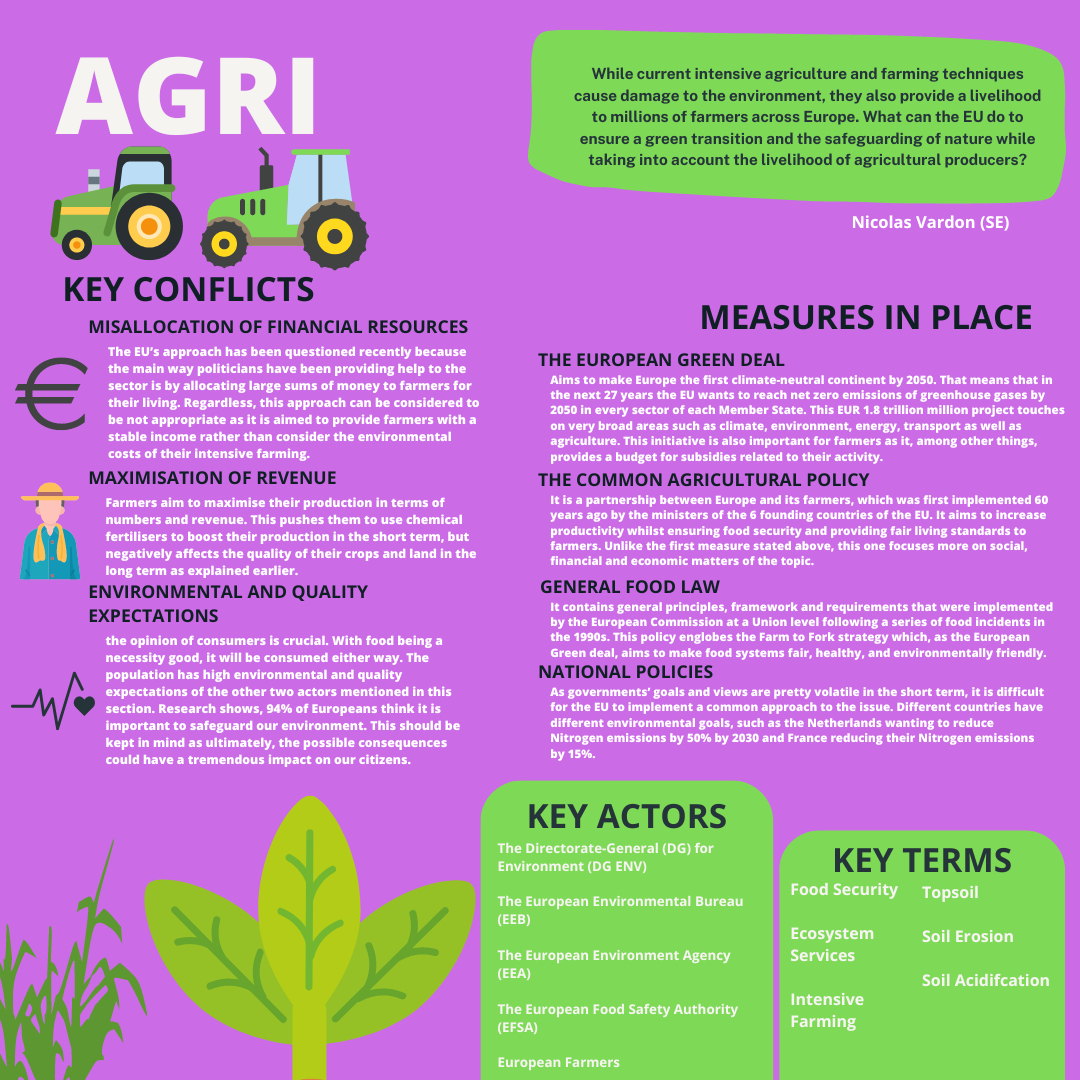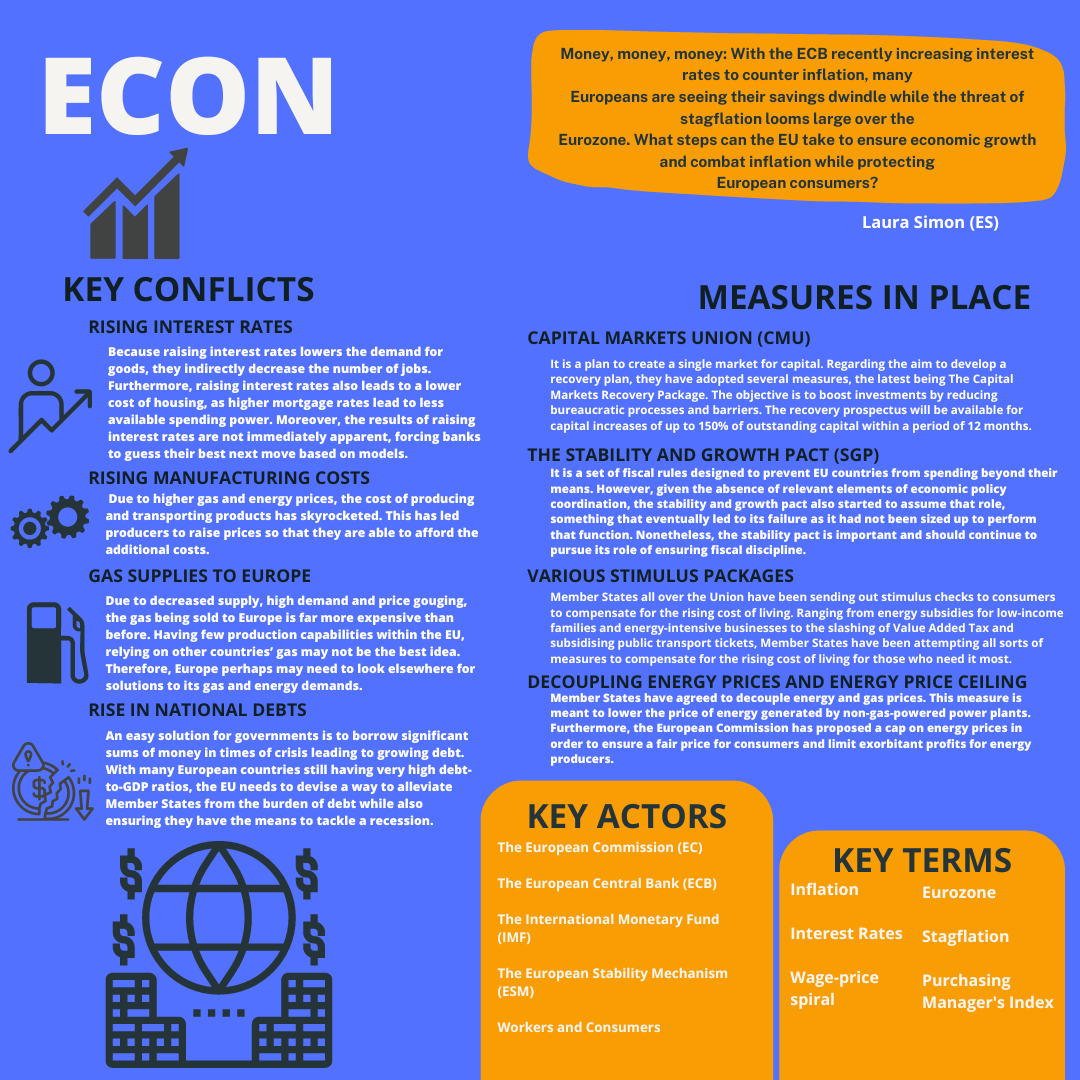
New beginnings: turning crises into opportunities
#DRC22
December 10 & 11
50 participants & 30 volunteers
Stanislascollege Westplantsoen
Session Elements

Teambuilding
Through a series of physical, creative and intellectual games and puzzles, participants quickly build trust in their committee. The main purpose of teambuilding is ensuring that everybody feels relaxed, energized and comfortable with expressing their opinion. It also aims to improve communication and productivity for Committee Work.

Committee Work
Participants will try to gain a solid understanding of the assigned topic and find problems, solutions and facts related to the subject. Collectively committee members write a resolution, presenting their vision to solving the key issues at hand. The focus of committee work is on create solutions together, reached by consensus and supported by well-grounded arguments.

General Assembly
All committees present and defend their resolutions in a public meeting. Participants get the chance to speak from the podium, ask questions from the floor and eventually vote in favour or against the proposal. As the General Assembly usually takes place in a special venue and is followed by the Closing Ceremony with guest speakers, formal clothing is appropriate.

Eurovillage
Eurovillage is a fantastic opportunity to learn about other cultures and their delicious cuisine from all over Europe. Bring something that represents a region/ culture in the Netherlands or Europe. Don’t forget to bring your own special dishes and drinks! It is a fun cultural event where everyone can taste different types of food and drinks.
Resolutions
The Academic output of the conference are the policy proposals drafted by the committees of delegates. They are debated and voted upon in the General Assembly on Sunday, in the following order: SEDE – LIBE II – TRAN – PECH – LIBE I – ECON – AGRI – DEVE.
Team

Packing List
Clothing:
- Casual clothing for Teambuilding and Committee Work
- Smart/formal clothing for General Assembly
- National clothing of your country for Eurovillage
- Warm and comfortable clothing (bring an extra sweater or hoodie since it might get chilly in the school building)
- Pyjamas
Essentials:
- Air mattress/sleeping mat, pillow, sleeping bag or comforter
- Food and or drinks for Eurovillage
- Snacks
- Water bottle
- ID or passport
- Health insurance card
Personal items:
- Toiletries (toothbrush, toothpaste, soap, skincare products)
- Any medication you may need
- Towel
- Charger
- Academics:
- Laptop/tablet + charger (not obligatory)
- Pen & paper
- Research material and Academic Preparation Kit (you will not be able to print during the event)

Programme
Saturday
08:15 – 09:00 Officials Breakfast
09:00 – 09:45 Delegate Arrivals
09:45 – 10:15 General Teambuilding
10:15 – 12:15 Teambuilding
12:15 – 13:00 Lunch
13:00 – 14:45 Committee Work
14:45 – 15:00 Coffeebreak
15:00 – 17:00 Committee Work
17:00 – 17:20 Coffeebreak
17:20 – 18:50 Committee Work
18:50 – 19:15 Eurovillage preparation
19:15 – 20:30 Eurovillage
20:30 – 23:00 Evening programme, free time and preparing for General Assembly
23:00 Bedtime
Sunday
07:30 – 08:30 Wake up and pack up sleeping gear
08:30 – 09:15 Breakfast
09:30 – 09:45 Arrival GA venue
10:00 – 10:15 Opening of General Assembly
10:15 – 11:45 General Assembly Committee 1 & 2
11:45 – 12:00 Speech STIP
12:00 – 12:45 Lunch + Q&A guest speaker
12:45 – 14:15 General Assembly committee 3 & 4
14:15 – 14:35 Coffee break
14:35 – 16:05 General Assembly committee 5 & 6
16:05 – 16:25 Coffee break
16:25 – 18:00 General Assembly committee 7 & 8
18:00 – 19:00 Closing Ceremony
19:10 Departures
Travel
Arrival to Delft
By train
There are many train options to Delft from the Netherlands and other European countries. To book your ticket to the train station in Delft you can use this website.
From Schiphol Airport (AMS)
The trains from Amsterdam Schiphol to Delft take around 40-45 mins and cost 11 euros. There are direct trains (direction Dordrecht) every 30 mins. You can also take the train to Leiden Centraal (direction Den Haag Centraal) and take the train to Delft from there. Tickets can be purchased either at the train station or through the NS App.
From Eindhoven Airport (EIN)
From the airport, take the bus 400 or 401 to Eindhoven Centraal. From the train station, there is a direct train to Delft (direction Den Haag Centraal) that runs every 30 mins. This journey takes 1 hour 15 mins and costs €21.80. However, if you book your ticket earlier through the app, you might get it for €12.99.
Arrival to the school venue
The conference will take place at Stanislascollege Westplantsoen. The address of this location is Westplantsoen 71, 2613 GK Delft. It is about a fifteen minute walk from the station to our location.

However, you can also take a tram from the station in Delft the stop called Prinsenhof. Every few minutes a tram will leave from the station to stop at Prinsenhof, this is Tram line 1 or Tram line 19. Heading either to ´Kurhaus´ or ´Scheveningen Noord´ (line 1), or to ´Leidschendam´ (line 19). This trip takes 5 minutes. From there it’s a nine minute walk to the school.
Additionally, you can take bus line 61 heading to “Rijswijk via Kuyperwijk”. The stop “Bolwerk ” is 5 minutes away by foot from the station and you can get off at the stop Weteringlaan. Once you get off, all you have to do is walk through the park for 5 minutes.
Travel tips
It is useful to download a few apps on your phone for public transport in the Netherlands. 9292 is the online platform for all public & shared transport in the Netherlands with current travel information & e-tickets. The ´NS reisplanner´ is also a useful site/app with travel information. In addition, Google Maps is your best friend.
Academic Topic Overviews
Supported by the Academic Board, the Chairpersons wrote academic topic overviews for their committees. All participants are required to dive into their committee topic and do further research before attending the conference. Good luck with your academic preparation!
- TRAN
 All aboard!: With fuel prices on the rise, trains have become a more viable and sustainable mode of travel. However, due to longer travel times, high ticket prices and a lack of last-mile infrastructure, many Europeans still favour the plane or car over the train. What steps can the EU take to improve and facilitate European-wide railway transportation?
All aboard!: With fuel prices on the rise, trains have become a more viable and sustainable mode of travel. However, due to longer travel times, high ticket prices and a lack of last-mile infrastructure, many Europeans still favour the plane or car over the train. What steps can the EU take to improve and facilitate European-wide railway transportation? - SEDE
 A European Army: With NATO and the transatlantic partnership having been unstable, calls for more European strategic sovereignty in foreign policy and military matters have arisen. Seeing how Member States like Germany and Poland have already upscaled their military expenditures, how should the EU follow in potentially mutualising its defence ambitions?
A European Army: With NATO and the transatlantic partnership having been unstable, calls for more European strategic sovereignty in foreign policy and military matters have arisen. Seeing how Member States like Germany and Poland have already upscaled their military expenditures, how should the EU follow in potentially mutualising its defence ambitions? - PECH
 Under the sea: Marine biodiversity and habitat loss is an ongoing challenge for Europe’s seas. EU actions have not restored its waters to good environmental status nor fishing to sustainable levels in all seas. What more can the EU do to protect marine life in EU waters?
Under the sea: Marine biodiversity and habitat loss is an ongoing challenge for Europe’s seas. EU actions have not restored its waters to good environmental status nor fishing to sustainable levels in all seas. What more can the EU do to protect marine life in EU waters? - LIBE II
 Rule by the people: With the European Parliament recently declaring that Hungary is no longer a full democracy, as well as the pressure the judiciary is facing in Poland, what can the EU do to uphold the democratic functioning of its Member States?
Rule by the people: With the European Parliament recently declaring that Hungary is no longer a full democracy, as well as the pressure the judiciary is facing in Poland, what can the EU do to uphold the democratic functioning of its Member States? - LIBE I
 Journalism under pressure: In recent years, freedom of the press has come under pressure in the EU. With journalists facing threats or even coming under attack, what can the EU do to ensure journalists can work safely and freely?
Journalism under pressure: In recent years, freedom of the press has come under pressure in the EU. With journalists facing threats or even coming under attack, what can the EU do to ensure journalists can work safely and freely? - ECON
 Money, money, money: With the ECB recently increasing interest rates to counter inflation, many Europeans are seeing their savings dwindle while the threat of stagflation looms large over the Eurozone. What steps can the EU take to ensure economic growth and combat inflation while protecting European consumers?
Money, money, money: With the ECB recently increasing interest rates to counter inflation, many Europeans are seeing their savings dwindle while the threat of stagflation looms large over the Eurozone. What steps can the EU take to ensure economic growth and combat inflation while protecting European consumers? - DEVE
 Rebuilding Ukraine: Current estimates predict the rebuilding of Ukraine will cost upwards of 350 billion Euros as of September 2022. Meanwhile, EU officials have spoken out for Ukrainian admission into the EU. In what way should the EU support the rebuilding process and shape future relations with Ukraine after the war?
Rebuilding Ukraine: Current estimates predict the rebuilding of Ukraine will cost upwards of 350 billion Euros as of September 2022. Meanwhile, EU officials have spoken out for Ukrainian admission into the EU. In what way should the EU support the rebuilding process and shape future relations with Ukraine after the war? - AGRI
 While current intensive agriculture and farming techniques cause damage to the environment, they also provide a livelihood to millions of farmers across Europe. What can the EU do to ensure a green transition and the safeguarding of nature while taking into account the livelihood of agricultural producers?
While current intensive agriculture and farming techniques cause damage to the environment, they also provide a livelihood to millions of farmers across Europe. What can the EU do to ensure a green transition and the safeguarding of nature while taking into account the livelihood of agricultural producers?
Media
The Media Team of Delft Regional Conference has prepared infographics to help participants quickly grasp all the academic topics.








